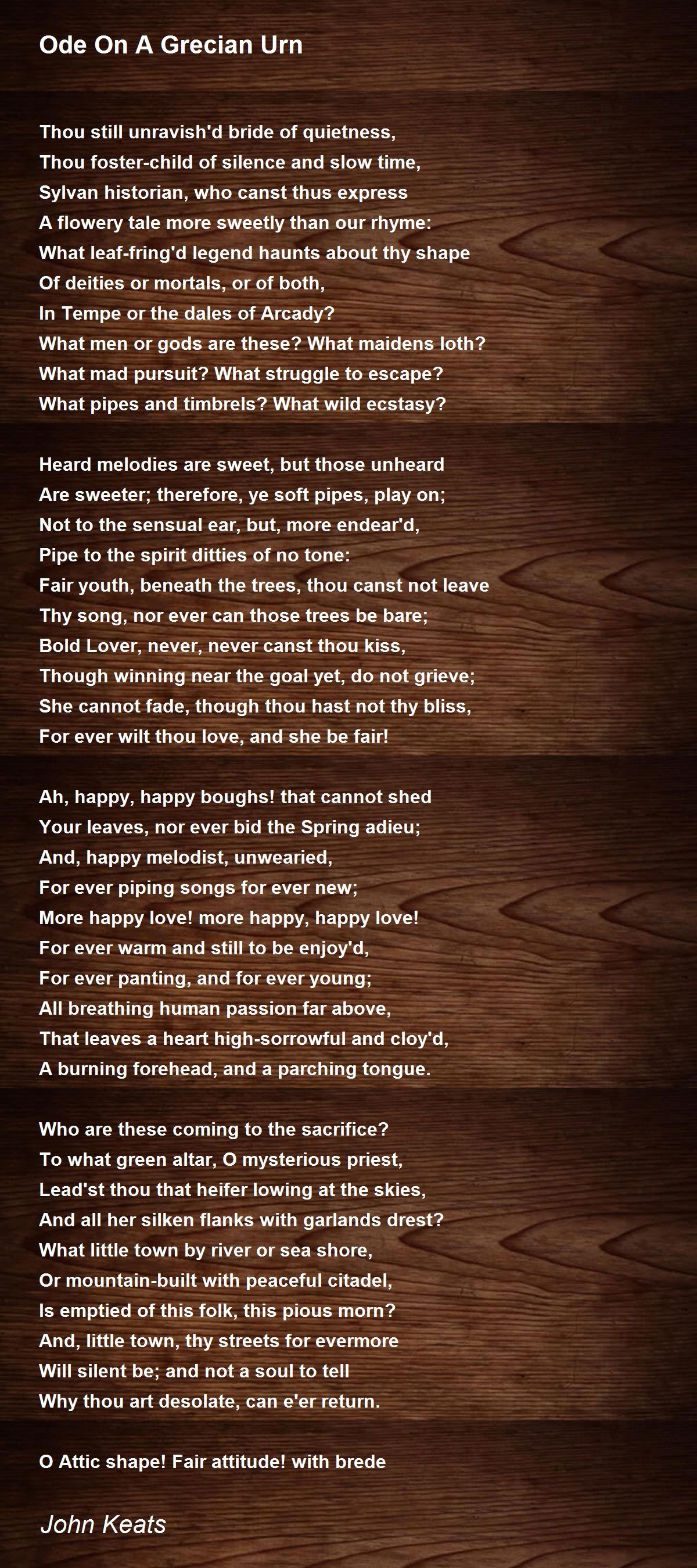 After reading this poem, what speaks to me is the contrast difference between the permanent world of imagination and the transitory world of reality. For the first half of the poem, the author tells the story of the pilgrims, lovers and other mysterious people recorded in times of gods and men engraved in the urn – the permanent beauty. The story express the author’s yearning and obsession to be part of that timeless beauty in a passionate way:
After reading this poem, what speaks to me is the contrast difference between the permanent world of imagination and the transitory world of reality. For the first half of the poem, the author tells the story of the pilgrims, lovers and other mysterious people recorded in times of gods and men engraved in the urn – the permanent beauty. The story express the author’s yearning and obsession to be part of that timeless beauty in a passionate way:
“Ah, happy, happy boughs! that cannot shed
Your leaves, nor ever bid the Spring adieu;
And, happy melodist, unwearied,
For ever piping songs for ever new;
More happy love! more happy, happy love!
For ever warm and still to be enjoy’d,
For ever panting, and forever young;”
John Keats regards the urn as a virgin bride of quietness for time does not flow in it. For him, the urn is unchanging, perfect and silent which made the story in it immortal and beautiful: the lovers are always in love, the music of the pipe is forever sweet, and the people attending the sacrifice will ever possess the joy of anticipation. Contradict to this pleasurable infinity is the “Cold Pastoral” – the reality. The author describes our reality is something finite and that even after our stories fade through time, the urn will still be around:
“When old age shall this generation waste,
Thou shalt remain, in midst of other woe
Than ours, a friend to man, to whom thou say’st,”
Through this paradoxical approach, I believe what John Keats is trying to say his understanding of life or “truth”:
“Beauty is Truth, Truth Beauty,”
We always see art, which is the urn in this case, as an abstract, mysterious, unreachable, eternal beauty. Like art, the truth is also what we try to obtain but can never achieve. But in Keats’ world, there is beauty and truth in tragic awareness of temporal and painful life as well. On the one hand, the lover on the urn has the privilege that the beauty of his beloved can never fade away. But on the other hand, if the lover in the world of the urn never kiss his beloved and genuinely feel the emotion of being in love and losing that love, will he ever appreciate that permanent beauty? In short, what I inferred from the poem is that beauty comes from reality. Only by facing the tragic aspects of life can one fully cherish the undying beauty of art; and that truth is complexity instead of binaries.